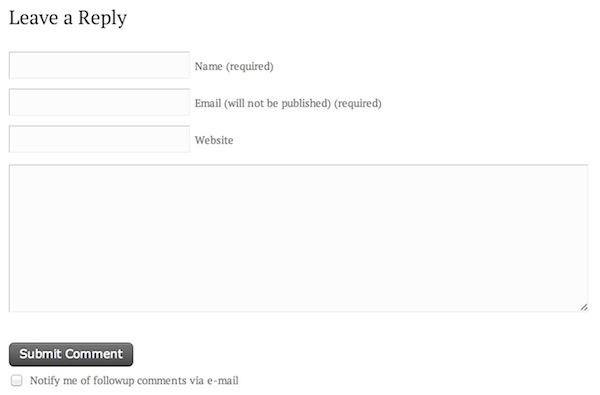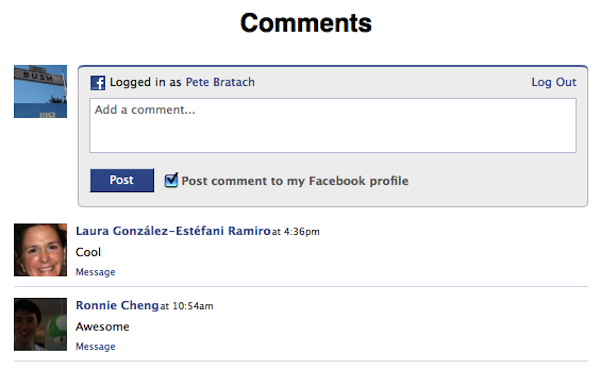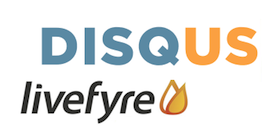Page no: S42
Information about this
The Right System For Blog Comments LiveFyre Vs Disqus Vs Facebook
This post was written by Tom Ewer, a regular contributor for MyWifeQuitHerJob.com.
One could consider commenting to be the best representation of what the blogging movement is all about. They represent the type of interactivity that make blogs what they are — a medium in which the author can publish and the reader can respond.
Just 4% of the Technorati 100 blogs had no comment system as of last year, which should demonstrate just how prevelant blog commenting still is. If one is to accept the importance of comments, one must also consider the comment system that is being used.
Whilst WordPress (my blogging platform of choice) has an excellent inbuilt comment system, any blogger would be remiss not to at least explore the alternatives.
That’s exactly what I did over the last couple of weeks (and before) as I sought out the best comments system for LeavingWorkBehind.com, and in this post I want to reveal my findings.
What’s Out There?
As a WordPress blogger the most popular comment systems are:
- WordPress’ in built comment system
- Livefyre
- Disqus
- Facebook Comments
While there are other systems available, these four pack leaders essentially represent the three different “types” of systems on the market today, which are essentially distinguished by their respective feature sets. Let’s take a look at each type in turn.
The WordPress Comment System: Clean and SimpleAs one might expect with a feature that is packaged with the WordPress core, the standard WordPress comments system is a relatively barebones affair. However, I do not mean this in a derogatory sense — I personally view its simplicity as a plus point. The comment form is simple and self-explanatory and you get a simple nested interface: And as the first screenshot above shows (with the little notifications checkbox), the standard WordPress comment system is extendable via plugins. For example, a lot of well known bloggers like to use the Comment Luv plugin which isn’t available with the other commenting problems. In any case, WordPress comments are a great starting point for any blogger and arguably a great long term problem. |
 |
Livefyre and Disqus: Consolidated Social solutionIf on the other hand you’re a fan of bells and whistles then the above two options may well suit. They are both relatively similar in terms of features and deciding between the two is far less critical than deciding whether or not you want to go with this particular style of comments system. The advantages of these plugins are the aforementioned features above and beyond that of the WordPress comment system (click here for an overview of Livefyre’s features). More specifically, social interaction is the name of the game, with commenters being able to login via their favorite social media network. Editor’s Note: The main thing I dislike about 3rd party commenting systems is the loss of control. Basically, once you start using these services they essentially own your comments. And if their servers ever go down so will the commenting on your blog. |
|
Facebook Comments: The Social Behemoth and Anti-Spam solutionThere’s a lot to like about Facebook comments. It integrates directly with commenter’s Facebook accounts and if allowed posts their comments to their own pages. This in turn results in far greater exposure of your posts. As you can see from the following screenshot, it all looks rather slick and familiar:
News organizations that have implemented Facebook comments have reported a higher quality of discussion and an increase in referral traffic — a double whammy of highly desireable effects. The theory is that because Facebook users have to post their comments alongside their actual name and face, they’re far less likely to engage in trolling and the like. |
 |
Which System is Right For You?
Ultimately you have to make the decision as to which comments system is going to best suit your blog.
Editor’s Note: I personally have stayed with WordPress because I like to own my own comments and be in control. As an example, Disqus recently started inserting ads into their commenting javascript. It goes without saying that having ads next to your comments can have a negative impact with your time on site metrics.
Ultimately, it came down to the WordPress comment system (which I was currently using at the time) and Facebook comments. In all honesty I was sorely tempted by Facebook comments. I loved the idea of better quality contents, no spam, and higher referrals. It seemed like the Holy Trinity of blog commenting perfection.
[Important]However, in the end I decided to stick with the WordPress comment system for one simple reason — user opinion.
I polled my Twitter followers and the overwhelming majority voted against me installing Facebook comments. It seems that a lot of people aren’t comfortable with linking their Facebook profile to your blog and also fear that their comments will make their way onto their Facebook pages without their consent.[/important]
I may revisit Facebook comments again soon as I still love it in principle, but for now I will stick with WordPress. What is your weapon of choice?
Tags: comment system, concept, system
See more for